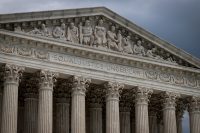Case Study: When Discussing Accommodations, Follow Interactive Process
The Americans with Disabilities Act (ADA) and Massachusetts General Law Chapter 151B (Chapter 151B) both require employers to provide reasonable accommodations absent undue hardship to employees and to engage in an interactive dialogue with those who need a reasonable accommodation. Employers that fail to do so face legal liability. The recent jury verdict in Menninger […]










